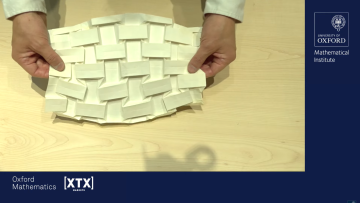13:30
Groups and Geometry in the South East
Abstract
Counting incompressible surfaces in hyperbolic 3-manifolds.
1:30pm
Marc Lackenby (Oxford)
Incompressible embedded surfaces play a central role in 3-manifold theory. It is a natural and interesting question to ask how many such surfaces are contained in a given 3-manifold M, as a function of their genus g. I will present a new theorem that provides a surprisingly small upper bound. For any given g, there a polynomial p_g with the following property. The number of closed incompressible surfaces of genus g in a hyperbolic 3-manifold M is at most p_g(vol(M)). This is joint work with Anastasiia Tsvietkova.
~~~~
The rates of growth in hyperbolic groups.
2:45pm
Koji Fujiwara (Kyoto)
For a finitely generated group of exponential growth, we study the set of exponential growth rates for all possible finite generating sets. Let G be a hyperbolic group. It turns out that the set of growth rates is well-ordered. Also, given a number, there are only finitely many generating sets that have this number as the growth rate. I also plan to discuss the set of growth for a family of groups.
~~~~
Character varieties of random groups.
4:00pm
Emmanuel Breuillard (Oxford)
In joint work with P. Varju and O. Becker we study the representation and character varieties of random finitely presented groups with values in a complex semisimple Lie group. We compute the dimension and number of irreducible components of the character variety of a random group. In particular we show that random one-relator groups have many rigid Zariski-dense representations. The proofs use a fair amount of number theory and are conditional on GRH. Key to them is the use of expander graphs for finite simple groups of Lie type as well as a new spectral gap result for random walks on linear groups.


